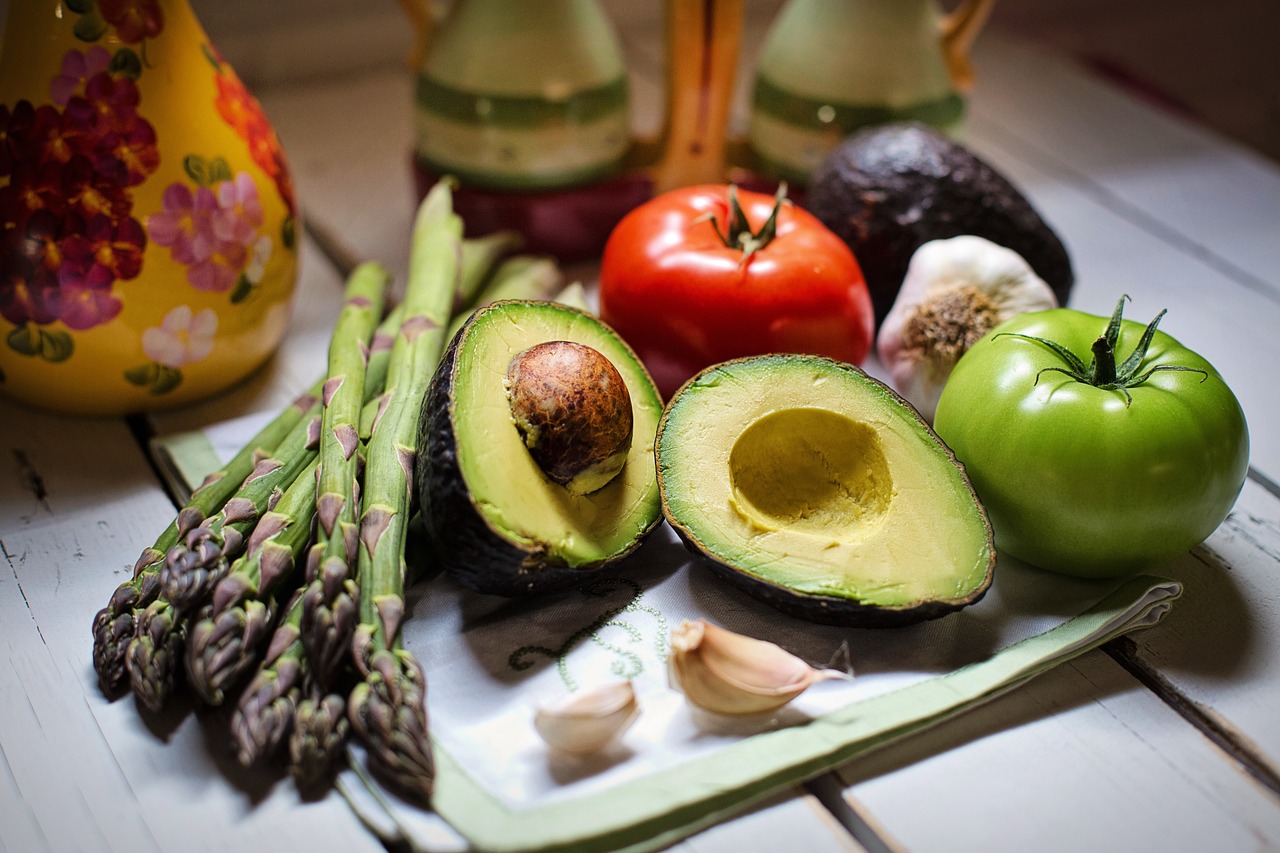Plant-Based Foods: The Ultimate Guide to Pros and Cons
Discover the Benefits and Drawbacks of a Plant-Based Diet
In recent years, plant-based foods have surged in popularity, capturing the attention of health enthusiasts, environmental advocates, and curious eaters alike. With an array of delicious options available, from vibrant salads to hearty grain bowls, many are eager to explore the world of plant-based eating. But what exactly are plant-based foods, and why has this trend gained such momentum? This article delves into the nature of plant-based foods, investigating their potential benefits for our health, our planet, and even our wallets. However, it’s not all sunshine and rainbows—there are challenges and criticisms to consider as well. Join us as we illuminate the intricacies of incorporating more plant-based foods into your diet.
Plant-based eating primarily focuses on consuming foods derived from plants, including fruits, vegetables, legumes, grains, nuts, and seeds. It doesn't necessarily mean that individuals must eliminate animal products completely; rather, it encourages a greater emphasis on plant-derived ingredients. Whether you're considering a fully vegan lifestyle, a vegetarian approach, or simply looking to introduce more plant-based meals to your everyday routine, understanding the advantages and disadvantages of plant-based foods is essential for making informed dietary choices. Through this exploration, we aim to provide clarity on whether the shift to plant-based eating aligns with your health and lifestyle preferences.
Pros
As more people comprehend the power of nutrition, plant-based foods have climbed to the top of health discussions. But what exactly are the benefits that these foods offer? From boosting energy levels to enhancing overall health, there are numerous reasons why so many are adopting a plant-based diet. This section will delve into the various advantages that plant-based foods can yield and why incorporating them into your meal plan could be a game-changer for your health and well-being. Whether you're curious about how these foods can contribute to weight management or how they can potentially reduce the risk of chronic diseases, read on to discover the compelling benefits of plant-based eating.
Heart Health: A Natural Solution
Plant-based foods have been associated with improved heart health due to their high fiber content and low levels of saturated fats. Studies show that diets rich in fruits, vegetables, whole grains, and legumes can significantly lower the risk of heart diseases. These foods help maintain healthy cholesterol levels and regulate blood pressure. Additionally, the antioxidants found in various plant-based foods may combat inflammation, further contributing to a healthier cardiovascular system. With heart disease being one of the leading causes of death worldwide, adopting a plant-based diet can be a proactive approach to safeguarding your heart.
Weight Management Made Easier
Transitioning to a plant-based diet can naturally lead to healthier weight management. Plant-based foods are often lower in calories compared to animal-based products, packed with fiber that promotes satiety and helps control appetite. By incorporating more fruits, vegetables, and legumes into your meals, you may find it easier to maintain or lose weight. Additionally, numerous studies suggest that plant-based diets are linked to a lower Body Mass Index (BMI) and a reduced risk of obesity. Hence, if you’re looking for an effective weight loss strategy, plant-based eating might just be the key!
Environmental Impact: A Sustainable Choice
Choosing plant-based foods contributes to a more sustainable lifestyle that has a significantly lower environmental footprint than meat-based diets. The production of plant foods requires fewer natural resources—such as land and water—and often results in lower greenhouse gas emissions compared to livestock farming. By reducing meat and dairy consumption, individuals can partake in the global mission to combat climate change and preserve our planet for future generations. In this way, a plant-based diet not only benefits personal health but also plays a pivotal role in promoting environmental sustainability.
Nutrient-Dense and Diverse
One of the most exciting advantages of plant-based foods is their rich nutrient profile. These foods are excellent sources of vitamins, minerals, and phytochemicals essential for your body's optimal functioning. Including a range of colorful fruits and vegetables guarantees a higher intake of essential nutrients while minimizing empty calories. The diversity of plant-based options means that meals can be both delicious and healthful, offering endless possibilities for creativity in your cooking. Therefore, a plant-based diet does not only focus on limitations but also celebrates a variety of nutritious and flavorful foods!
Lower Risk of Chronic Diseases
Numerous studies indicate that a plant-based diet can significantly lower the risk of developing chronic diseases such as diabetes, hypertension, and certain cancers. The high intake of antioxidants, vitamins, and minerals from fruits and vegetables provides protective effects against inflammation and cellular damage, leading to a healthier and longer life. Making the switch to a plant-based lifestyle can be a proactive approach to prevent these serious health issues.
Cost-Effectiveness
Transitioning to a plant-based diet can be more affordable than consuming meat and dairy products. The versatility of legumes, grains, and seasonal fruits and vegetables can lead to lower grocery bills. By focusing on whole, plant-based foods instead of processed animal products, individuals can save money while still enjoying nutritious and satisfying meals. This financial benefit makes plant-based diets not only healthy but also budget-friendly.
Improved Digestive Health
Plant-based foods are rich in dietary fiber, which is essential for maintaining a healthy digestive system. Fiber helps to promote regular bowel movements, reduce constipation, and support a healthy gut microbiome. A well-functioning digestive system can enhance nutrient absorption and overall health, making plant-based diets an excellent option for those seeking to improve gut health and prevent digestive disorders.
Missing a pro?
Let us know which pro you are missing!
Cons
While the benefits of plant-based foods are enticing, it’s crucial to recognize that this lifestyle may not be suitable for everyone. There are challenges and potential downsides to consider when making the transition to a plant-based diet. Some individuals may experience nutrient deficiencies or struggle to find adequate food options. This section outlines the various disadvantages associated with plant-based eating, addressing concerns such as nutritional imbalances and the possibility of social isolation when dining out. By understanding these potential drawbacks, you can make a balanced decision on whether plant-based foods fit your lifestyle.
Risk of Nutrient Deficiencies
One of the significant drawbacks of a strictly plant-based diet is the risk of nutrient deficiencies. Certain vitamins and minerals, like Vitamin B12, iron, and omega-3 fatty acids, are predominantly found in animal-based foods. Without careful planning, those following a plant-based lifestyle may not meet their nutritional needs effectively. Nutrient deficiencies can lead to fatigue, compromised immune function, and other health issues. Therefore, it's essential for those eager to embrace a plant-based diet to consider fortified foods or supplements, and to consult a healthcare provider to monitor their nutrient intake.
Limited Food Choices: Dining Out Dilemmas
Adopting a plant-based diet can sometimes make eating out a challenge. Despite an increasing number of restaurants offering plant-based options, many establishments still primarily serve meat and dairy. Consequently, individuals following a plant-based diet may find themselves struggling to find suitable meal choices, potentially leading to frustration and inconvenience. Dining with friends or family can also pose challenges, particularly if others are not on board with the plant-based lifestyle. Therefore, this perceived social limitation can sometimes deter individuals from fully committing to this dietary approach.
Adjustment Period: The Transition Can Be Tough
Transitioning to a plant-based diet often involves a significant adjustment period, which can be mentally and physically challenging. Some individuals may experience cravings for the taste and texture of meat and dairy, leading to potential feelings of deprivation. Additionally, learning to prepare new plant-based meals and adjusting cooking methods may feel overwhelming for beginners. Individuals eager to adopt a plant-based diet should be prepared for this transition, and consider approaching it gradually by incorporating plant-based meals into their routine instead of making a swift switch.
Potential for Processed Foods: Not All Plant Foods Are Healthy
While many plant-based foods are incredibly nutritious, not all plant-derived options are created equal. The rise of processed plant-based alternatives—such as faux meats and dairy substitutes—can be misleading, as they are often high in sodium and contain additives that may not be healthful. Relying heavily on these processed foods may negate some of the health benefits associated with a whole-food plant-based diet. Therefore, consumers should critically examine product labels and prioritize whole and minimally processed plant-based foods for optimal health benefits.
Taste Preferences and Cravings
Transitioning to a plant-based diet can trigger strong cravings for familiar flavors and textures associated with meat and dairy. This transition can affect individuals' satisfaction with their meals, leading to frustration and potential dietary lapses. The challenge of finding palatable alternatives that fulfill these cravings can deter some from fully committing to a plant-based lifestyle, thereby impacting their long-term dietary choices and adherence.
Cooking and Preparation Time
Many plant-based meals require more preparation time than conventional diets, particularly for individuals unfamiliar with cooking or menu planning. Preparing fresh fruits, vegetables, legumes, and whole grains often involves chopping, soaking, and cooking, which can be time-consuming. This can be particularly challenging for busy individuals or families, potentially leading to choosing convenience foods that may not align with a healthy plant-based philosophy.
Social Challenges: Navigating Social Situations
Adopting a plant-based diet can sometimes lead to social difficulties. Many social gatherings focus heavily on meat-based dishes, and this can create challenges for those on a plant-based diet when it comes to avoiding unwanted attention or feeling left out. Friends and family might not always understand the dietary choices, potentially leading to awkward situations during meals and social events. It requires proactive communication and creativity in meal planning when dining out or attending gatherings.
Missing a con?
Let us know which con you are missing!
Conclusion
Overall, incorporating plant-based foods into your diet presents a host of potential advantages, from improved health outcomes to positive environmental impacts. However, it also carries risks and challenges that must be navigated carefully. By weighing the pros and cons, individuals can make informed choices about their dietary preferences. Whether you choose to go fully plant-based or simply want to introduce more plant-derived foods into your meals, understanding these dynamics will empower you in your journey toward a healthier, more sustainable lifestyle. Ultimately, it's about finding balance and exploring what works best for your unique needs.
What do you think?
Do you think the pros outweigh the cons?










